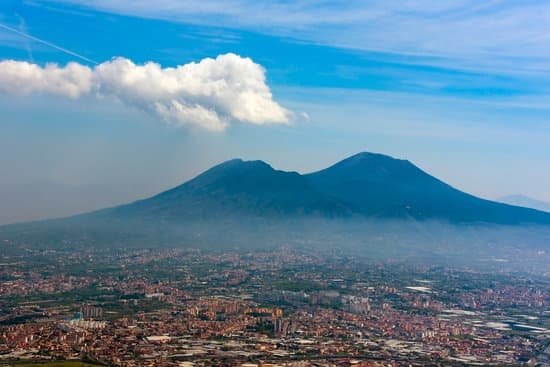Italy is a country that offers a perfect blend of rich history, stunning landscapes, and mouthwatering cuisine. If you are considering traveling to Italy, there are several important factors to consider to ensure a smooth and memorable trip.
From understanding the customs and traditions to navigating through the transportation system, this guide will provide you with essential tips for your journey. Whether you are planning to visit the iconic landmarks of Rome, explore the picturesque canals of Venice, or indulge in the delectable flavors of Tuscany, here’s what to know when traveling to Italy.
- Italian Culture: Understanding the customs and traditions is crucial when visiting Italy. From social etiquette to local customs, gaining a deeper understanding of Italian culture will help you immerse yourself in the vibrant atmosphere of this beautiful country.
- Visa and Passport Requirements: Before embarking on your Italian adventure, it’s important to familiarize yourself with the visa and passport requirements for your nationality. Ensuring that you have all the essential travel documents in order will prevent any unnecessary stress during your trip.
- Language: While English is widely spoken in major tourist areas, having some knowledge of Italian phrases and basic language skills can greatly enhance your travel experience. Whether it’s ordering a cappuccino at a local cafe or asking for directions, learning a few key phrases can go a long way in communicating with locals.
From savoring authentic Italian cuisine to exploring famous landmarks and cities like Florence or Milan – Italy has something special for every traveler. With careful preparation and these helpful tips, you’ll be well-equipped for an unforgettable journey through the captivating wonders of Italy.
Italian Culture
Italy is known for its rich and diverse culture, which is a major draw for tourists from all around the world. From art and architecture to fashion and cuisine, Italy has made significant contributions to global culture. When visiting Italy, it’s important to understand and respect Italian customs and traditions in order to fully immerse yourself in the local experience.
One of the most important aspects of Italian culture is family. Italians are known for their strong family bonds and close-knit relationships. It’s common for several generations to live together or in close proximity, and family gatherings are a central part of Italian life. When interacting with Italians, showing respect for their family values is crucial.
Another key aspect of Italian culture is food and dining etiquette. Italians take great pride in their culinary traditions, and meal times are often a leisurely affair filled with conversation and laughter. When dining in Italy, it’s important to remember that tipping is not as customary as it is in other countries, as service charges are often included in the bill.
It’s also essential to understand religious customs when traveling to Italy. With its deep-rooted Catholic heritage, Italy has numerous religious festivals and traditions throughout the year. Respect for religious sites, such as churches and cathedrals, is paramount when visiting these places of worship.
| Aspect of Italian Culture | Importance |
|---|---|
| Family values | Strong emphasis on close-knit relationships |
| Dining etiquette | Culinary traditions and mealtime customs |
| Religious customs | Respect for Catholic heritage and religious sites |
Visa and Passport Requirements
When planning a trip to Italy, it is important to ensure that you have the necessary visa and passport requirements in order to enter the country. Understanding the essential travel documents needed for your visit will help you avoid any last-minute complications or issues at the border.
Visa Requirements
For travelers from the United States, Canada, and most European countries, a visa is not required for stays of up to 90 days. However, it is crucial to check the specific visa requirements based on your nationality and the purpose of your visit to Italy. For longer stays or for other nationalities, it is advisable to contact the Italian embassy or consulate in your home country well in advance of your trip.
Passport Requirements
It is important to make sure that your passport is valid for at least three months beyond your planned date of departure from Italy. This requirement applies to all visitors entering Italy for tourism or business purposes. Additionally, it’s a good idea to make copies of your passport and other important travel documents in case they are lost or stolen during your trip.
Other Considerations
It’s also recommended to check if there are any additional entry requirements such as travel insurance, proof of sufficient funds, or health-related documentation needed for entry into Italy. Being aware of these requirements and ensuring that you have all necessary documents in order will help you have a smooth and hassle-free experience when travelling to Italy.
Understanding the visa and passport requirements for travelling to Italy is essential for a stress-free and enjoyable trip. By being prepared with the right travel documents and following the necessary guidelines, you can focus on soaking up the beauty of this captivating destination without any unnecessary worries about entry regulations.
Language
When traveling to Italy, it is important to have a basic understanding of the Italian language in order to communicate effectively with the locals. While many people in tourist areas and larger cities may speak English, being able to converse in Italian will enhance your overall experience and make it easier to navigate through the country. Here are some tips for communicating in Italian during your trip.
First, familiarize yourself with common Italian phrases and greetings. Learning simple expressions such as “hello,” “please,” “thank you,” and “excuse me” can go a long way in showing respect for the local culture. Additionally, having a basic grasp of numbers, directions, and asking for help will be beneficial when interacting with locals.
It can also be helpful to carry a pocket Italian phrasebook or use a translation app on your phone. This will allow you to look up words or phrases on the go, especially when dining at local restaurants or shopping at markets where English may not be spoken as commonly.
Lastly, don’t be afraid to practice speaking Italian during your trip. Locals will appreciate your efforts to communicate in their language, even if you make mistakes. They may also be more willing to assist you or provide recommendations if they see that you are making an effort to connect with them on a linguistic level.
By taking the time to learn some basic Italian phrases and practicing communication during your travels, you will not only enhance your experience but also show respect for the country’s rich linguistic heritage. Whether it’s ordering food at a trattoria or asking for directions on the streets of Rome, knowing how to communicate in Italian will undoubtedly enrich your journey through Italy.
Transportation
One of the most popular and efficient ways to travel within Italy is by train. The country has an extensive railway network that connects major cities and even smaller towns, making it convenient for tourists to explore various destinations. It’s important to familiarize yourself with the different types of trains, such as high-speed trains and regional trains, as well as ticketing options to ensure a seamless journey.
In addition to trains, Italy also has an extensive bus network that can be useful for reaching areas not easily accessible by train. Buses are a great option for exploring rural areas or getting to smaller towns that may not have direct train connections. It’s advisable to check bus schedules and routes in advance, especially if you plan on visiting less touristy locations.
Another important aspect of navigating through Italy is understanding the driving culture in the country. Renting a car can provide great flexibility for exploring off-the-beaten-path destinations, but it’s essential to be aware of Italian traffic laws and road signs. Moreover, parking in cities can be challenging, so it’s important to research parking options before embarking on any road trips.
These are just some of the key things travelers should know when navigating through Italy. By familiarizing yourself with these transportation options and tips, you can make the most out of your visit to this incredible country.
| Transportation Option | Tips |
|---|---|
| Trains | Familiarize with different types of trains and ticketing options |
| Buses | Check schedules and routes in advance, especially for rural areas |
| Driving | Be aware of Italian traffic laws, road signs, and parking options |
Cuisine
Italy is famous for its delicious cuisine, making it a top destination for food lovers around the world. From pasta dishes to gelato, there is no shortage of mouthwatering meals to try in Italy. When visiting this country, it’s important to know what to expect when it comes to sampling authentic Italian food and wine.
One of the things you should know when traveling to Italy is that regional cuisines vary greatly across the country. Each region has its own specialty dishes and traditional recipes, so be sure to explore the local flavors wherever you go.
In the north, you can enjoy creamy risottos and hearty polenta dishes, while in the south, you’ll find more seafood-based meals and spicy flavors. It’s also worth noting that meal times in Italy are later than in some other countries – lunch is typically served between 1pm and 3pm, while dinner is often eaten after 8pm.
In addition to its delectable food, Italy is also renowned for its high-quality wines. The country produces a wide variety of wines, from light and bubbly Prosecco in the Veneto region to full-bodied reds such as Chianti from Tuscany. When dining out, don’t hesitate to ask your server for wine recommendations that pair well with your meal.
And if you have the chance, consider visiting a local winery for a tasting experience to truly appreciate Italian wine culture. Overall, exploring the diverse and savory tastes of Italian cuisine is an essential part of any trip to Italy.
Safety and Security
When visiting Italy, it is essential to prioritize safety and security to ensure a smooth and enjoyable trip. While Italy is generally a safe country for travelers, it’s important to be aware of potential risks and take precautions to prevent any mishaps during your visit.
Staying Aware of Your Surroundings
One of the most important things to know when travelling to Italy is to stay mindful of your surroundings, especially in crowded tourist areas. Pickpocketing can be a common occurrence in popular tourist spots such as Rome, Florence, and Venice. Keep an eye on your belongings at all times, and consider using anti-theft bags or money belts for added security.
Emergency Services and Health Precautions
It’s crucial to familiarize yourself with Italy’s emergency services numbers, including 112 for general emergencies and 113 for police assistance. Additionally, make sure you have travel insurance that covers medical emergencies while in Italy. Familiarize yourself with the location of hospitals or clinics in the area you are visiting, should you require medical attention during your trip.
Transportation Safety
When using public transportation in Italy, exercise caution and be wary of potential scams or pickpocketing. Be cautious when using taxis and ensure that they are official vehicles with visible taxi markings. If renting a car, be aware of Italian traffic laws and parking regulations to avoid fines or penalties.
By staying informed about safety measures while traveling in Italy, tourists can better enjoy their experience without unnecessary worries or complications. It’s essential to remain vigilant but not let concerns overshadow the beauty and richness that Italy has to offer.
Must-Visit Destinations
Italy is a country rich in history, culture, and beauty. From the ancient ruins of Rome to the romantic canals of Venice, there are countless must-visit destinations to explore. Here are some famous cities and landmarks that you should not miss when traveling to Italy:
- Rome: The capital city of Italy is a treasure trove of iconic landmarks such as the Colosseum, Roman Forum, and Vatican City. Visitors can immerse themselves in the ancient history of Rome while also enjoying its vibrant modern culture.
- Florence: Known as the birthplace of the Renaissance, Florence is home to world-renowned art and architecture. Visitors can marvel at masterpieces in the Uffizi Gallery, climb the iconic Duomo, and stroll across the Ponte Vecchio bridge.
- Venice: This unique city on water is famous for its picturesque canals, historic palaces, and romantic gondola rides. Visitors can explore St. Mark’s Square, visit the Doge’s Palace, and get lost in the winding streets of this enchanting city.
In addition to these popular cities, Italy offers a multitude of other stunning destinations such as Milan with its fashion scene and iconic Duomo cathedral, the cliffside villages of Cinque Terre along the Ligurian coast, and the historic ruins of Pompeii near Naples. Each region of Italy boasts its own distinct culture, cuisine, and attractions that make it worth exploring.
When visiting these famous cities and landmarks in Italy, be sure to plan ahead for transportation and accommodations as they can get busy during peak tourist seasons. Whether you’re interested in history, art, architecture or simply soaking up the Italian way of life, these destinations are sure to leave a lasting impression on any traveler. What to know when travelling to Italy.
Packing Tips
When planning a trip to Italy, it’s important to pack the essentials to ensure a comfortable and enjoyable journey. Whether you’re exploring the historic streets of Rome or relaxing along the picturesque Amalfi Coast, having the right items in your suitcase can make all the difference. Here are some packing tips and must-have essentials for your trip to Italy:
- Comfortable walking shoes: Italy is a country best explored on foot, so be sure to pack a pair of comfortable walking shoes. From cobblestone streets to historic ruins, you’ll want footwear that can keep up with your adventures.
- Weather-appropriate clothing: Depending on the time of year and the regions you plan to visit, it’s important to pack weather-appropriate clothing. In the summer months, light and breathable fabrics are essential, while in the winter, layers and a warm coat will come in handy.
- Adaptor for electronics: Italy uses type F electrical outlets, so be sure to pack an adaptor if you plan on charging any electronic devices during your stay.
- Travel insurance and documents: It’s always wise to have travel insurance and copies of important documents such as your passport, visa, and itinerary. Keep these in a safe place separate from your originals.
- A day bag or backpack: For day trips and sightseeing excursions, it’s helpful to have a lightweight day bag or backpack to carry essentials such as water, sunscreen, snacks, and a camera.
Italy is known for its fashion-forward locals and stylish atmosphere, so feel free to pack some trendy outfits for nights out or upscale dining experiences. However, remember that comfort should always come first when exploring this beautiful country.
Lastly, don’t forget any specific items you may need based on planned activities – whether it’s hiking gear for trekking through Cinque Terre or swimwear for lounging by the Mediterranean Sea. By packing smartly and efficiently – with consideration for both comfort and style – you’ll be well-prepared for an unforgettable adventure in Italy.
Conclusion
In conclusion, traveling to Italy is an experience like no other. With its rich culture, delicious cuisine, and stunning landmarks, it’s no wonder why many people consider Italy a must-visit destination. However, there are several things to keep in mind when planning a trip to this beautiful country.
First and foremost, it’s important to familiarize yourself with Italian culture and customs. Understanding the traditions and social etiquette can go a long way in ensuring a smooth and respectful travel experience. Additionally, having a basic knowledge of the Italian language can also enhance your trip. Learning a few key phrases can make communicating with locals much easier and more enjoyable.
When it comes to transportation, Italy has an extensive network of trains and buses that make getting around the country relatively easy. It’s also essential to be aware of visa and passport requirements before traveling to Italy, as well as taking necessary safety precautions to ensure a safe journey. Lastly, don’t forget to indulge in the iconic Italian cuisine and wine during your visit.
Overall, visiting Italy can be an unforgettable experience if you are prepared and informed about what to expect. Keep these tips in mind, do some research on your chosen destinations, and get ready for an incredible adventure in one of Europe’s most captivating countries. Buon viaggio.
Frequently Asked Questions
What Do I Need Before Traveling to Italy?
Before traveling to Italy, there are several things that you will need. Firstly, a valid passport is essential, and it must be valid for at least three months beyond your planned stay in Italy. Additionally, depending on your nationality, you may also need a visa.
It’s important to check the specific requirements based on your individual circumstances. It’s also recommended to have travel insurance in case of unforeseen circumstances.
Do US Citizens Need Visa for Italy?
As of now, US citizens do not need a visa for visits to Italy that are 90 days or less for tourism or business purposes. However, it’s important for US citizens to have a valid passport that is at least valid for three months beyond their planned stay in Italy.
If the purpose of the visit is other than tourism or business, then different entry requirements may apply.
Are There Any Travel Restrictions to Italy?
Currently, due to the COVID-19 pandemic, there are travel restrictions in place for those traveling to Italy. These restrictions can include mandatory quarantine periods and testing requirements upon arrival.
It’s important to regularly check the latest travel advisories and restrictions from both the Italian government and your home country before planning any trip to Italy. Additionally, it’s crucial to be aware of any regional restrictions within Italy itself as they may vary based on the current situation with the pandemic.

I’m a passionate traveler, writer, and Italophile. My fascination with Italy’s history, art, and culture has led me on countless adventures across the Italian landscape. Through “I Live Italy,” I share my love for this extraordinary country and aims to inspire others to explore its boundless beauty.





